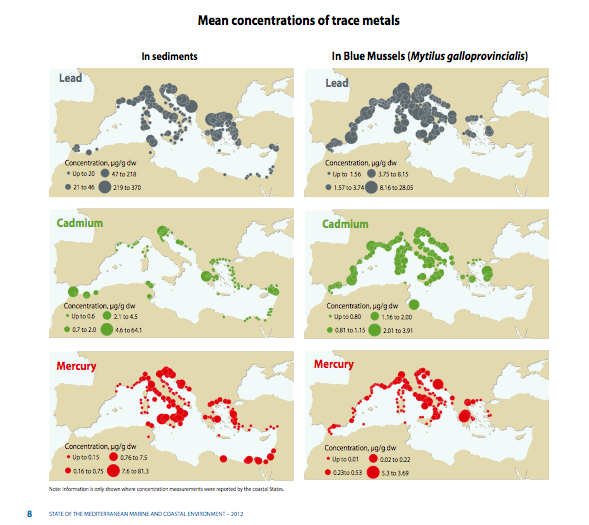Photo: Proto Thema
Victoria Mindova
The Mediterranean Sea is an attractive destination for tourists from around the world. About 30% of the tourist flow in the world visits the islands and its coastline and half of the world's merchant fleet sails its waters to deliver goods to various ports. Inevitably, the increasing human activity has highly polluted the emerald waters of the Mediterranean Sea in different regions, which can become an irreversible problem if no active measures are taken.
Large accumulations of pollutants in coastal areas around large urban centres have been seen in recent decades. At the same time, scientists have found out that since the Mediterranean is a semi-enclosed sea, it takes it about 1,000 years to completely purify its waters as shown by the data of the report on the status of the Mediterranean coastal waters, which has been prepared in accordance with the programme of the United Nations under the Barcelona Convention. The specialists voice serious concerns about the quality of the waters of the Mediterranean Sea and therefore, 21 countries are currently working on a joint action plan to reduce the damage in the sea caused by human activity.
The scientists have identified several sources of marine pollution. The first is the result of land-based  activities, including tourist activity that has expanded along the coast, lack of effective treatment of wastewaters and general pollution of the environment in coastal areas. 37% of the coastal areas with more than 2,000 inhabitants do not use wastewater treatment plants. The waters go straight into the sea, thus directly affecting the flora, fauna and chemical composition of the Mediterranean Sea.
activities, including tourist activity that has expanded along the coast, lack of effective treatment of wastewaters and general pollution of the environment in coastal areas. 37% of the coastal areas with more than 2,000 inhabitants do not use wastewater treatment plants. The waters go straight into the sea, thus directly affecting the flora, fauna and chemical composition of the Mediterranean Sea.
Another factor that plays an important role in the deterioration of the sea environment is polluted water sources that flow into the sea (rivers). In the period from 1960 to 2000, the quantity of fresh water in the Mediterranean Sea had declined by 20%. At the same time, the pollution of water has increased because of human practices.
The activities that directly affect pollution include shipping, fishing, oil production and exploration of gas deposits. 75% of fishing for commercial purposes is still the result of unregulated practices, according to experts. Researchers are adamant that there should be stricter control over aquafarming. An example of inexpedient fishing practices is the production of tuna fish for consumption - it takes 25 kg of live fish to produce 1 kg of tuna that is ready for consumption.
The pollutants associated with atmospheric phenomena such as acid rain, which carries pollutants into seawaters and which is the result of human activity too, ranks last but not least.
"In the Mediterranean, we mostly observe land-based pollution from industrial activities and pollution from large agglomerations with high emissions of nitrogen and phosphorus. Another source of pollution is agriculture, which uses fertilizers. These harmful substances reach the sea through river waters," Tatjana Hema, who is on the research team specializing in the sources of pollution to the coordination team of the United Nations, told GRReporter.
She stresses that many industries are concentrated in the Mediterranean region and are the source of many toxic elements like mercury, cadmium, polycyclic aromatic hydrocarbons, heavy metals and more. Scientists are carrying out a thorough analysis of trends in water pollution based on studies that took place in the period from 2003 to 2008. New series of studies are being carried out at present that will shed additional light on the changes in the aquatic environment and will support the efforts to reduce pollution in the Mediterranean Sea.

The most important issue for Greece is the management of coastal areas. The coastal areas around Athens and Thessaloniki have the highest levels of pollution. Maria Papa, Head of International Relations at the Ministry of Environment, points out that 85% of the population of the country, 80% of its industrial activity and 90% of tourism in Greece are concentrated in the coastal areas of the country.
Evangelos Livieratos, Minister of Environment, Energy and Climate Change, states that the report data will help the government take a comprehensive package of measures to improve the situation in the Mediterranean Sea. "Monitoring and listing of polluted sites plays an important role in solving the problem," the Minister says, stressing that the report is a starting point for the introduction of changes that will improve the environment in the Mediterranean region.
Attila Horace, who is programme director of the United Nations’ project to improve the environment and head of the project in Athens, states that the overall picture of the Mediterranean Sea should be considered as well as the industrial development and the measures that each country must implement in order to find a sustainable solution to the situation.
"The disadvantages of the Mediterranean Sea are that it is semi-enclosed and it has narrow connection with the ocean. It is better connected with the Black Sea, which is also a closed sea. On the other hand, the Mediterranean Sea is the first as regards which of the countries that surround it are ready to cooperate to find a solution to the pollution. From the perspective of the efforts being made, I can say that the project has many advantages. The programme to improve the quality of marine waters here may be an experimental medium for the world. If we succeed here in the Mediterranean region, this could be an excellent model for action for the rest of the world."